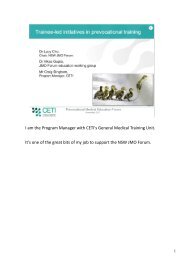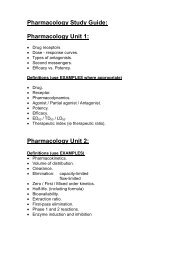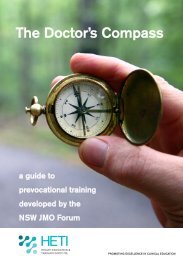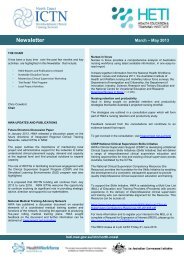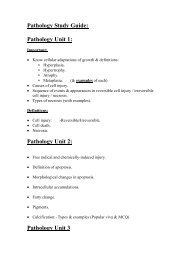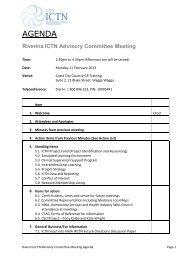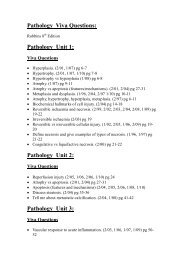a handbook for supervising allied health professionals - HETI - NSW ...
a handbook for supervising allied health professionals - HETI - NSW ...
a handbook for supervising allied health professionals - HETI - NSW ...
You also want an ePaper? Increase the reach of your titles
YUMPU automatically turns print PDFs into web optimized ePapers that Google loves.
THE SUPERGUIDE<br />
Setting expectations<br />
When establishing a relationship<br />
between a supervisee and<br />
supervisor, it is important to ensure<br />
from the very beginning that clear<br />
boundaries are set and both<br />
parties have clear expectations of<br />
the process.<br />
The quality of the relationship<br />
between the supervisor and the<br />
supervisee is the most important<br />
factor of effective supervision.<br />
(Kilminster & Jolly 2000)<br />
16<br />
Staff who are new to a department or clinical area need a comprehensive orientation.<br />
For more in<strong>for</strong>mation on what should be covered in orientation, refer to page 63.<br />
An effective way to set expectations from the very beginning is to discuss:<br />
• perceived strengths of both parties<br />
• current concerns or fears<br />
• areas the supervisee would like to develop<br />
• how the supervisee learns best (recognition of different learning styles)<br />
• what level of support the supervisee currently feels they require<br />
• what the supervisee expects from the supervisory relationship<br />
• what has worked/not worked <strong>for</strong> the supervisee in supervision in the past.<br />
The supervisor should also discuss with the supervisee:<br />
• the frequency of one-to-one supervision sessions<br />
• expectations of the supervisee regarding the supervisory relationship<br />
• availability and willingness to be contacted as assistance is required<br />
• the best way to access advice on a day-to-day basis.<br />
This will assist both parties to manage potential issues or concerns as they arise<br />
because a point of reference regarding expectations has been established.<br />
It is important that the supervisor does not perceive or project to others that supervision<br />
is a burden. Supervision is an opportunity to support the development of staff and ensure<br />
the delivery of high quality patient care. Supervisors should ensure the staff they are<br />
<strong>supervising</strong> feel genuinely supported and that their role as a supervisor is taken seriously.



